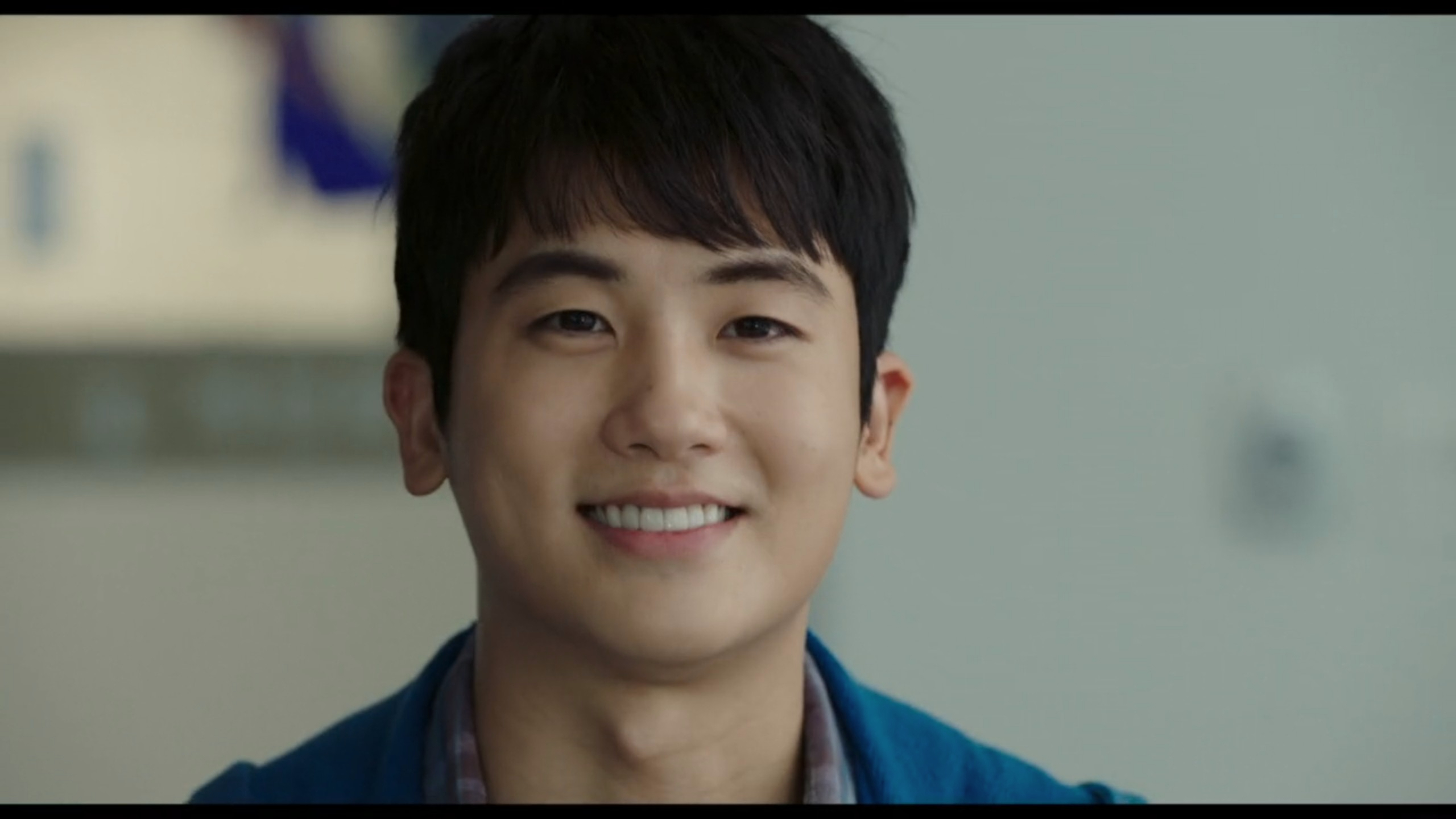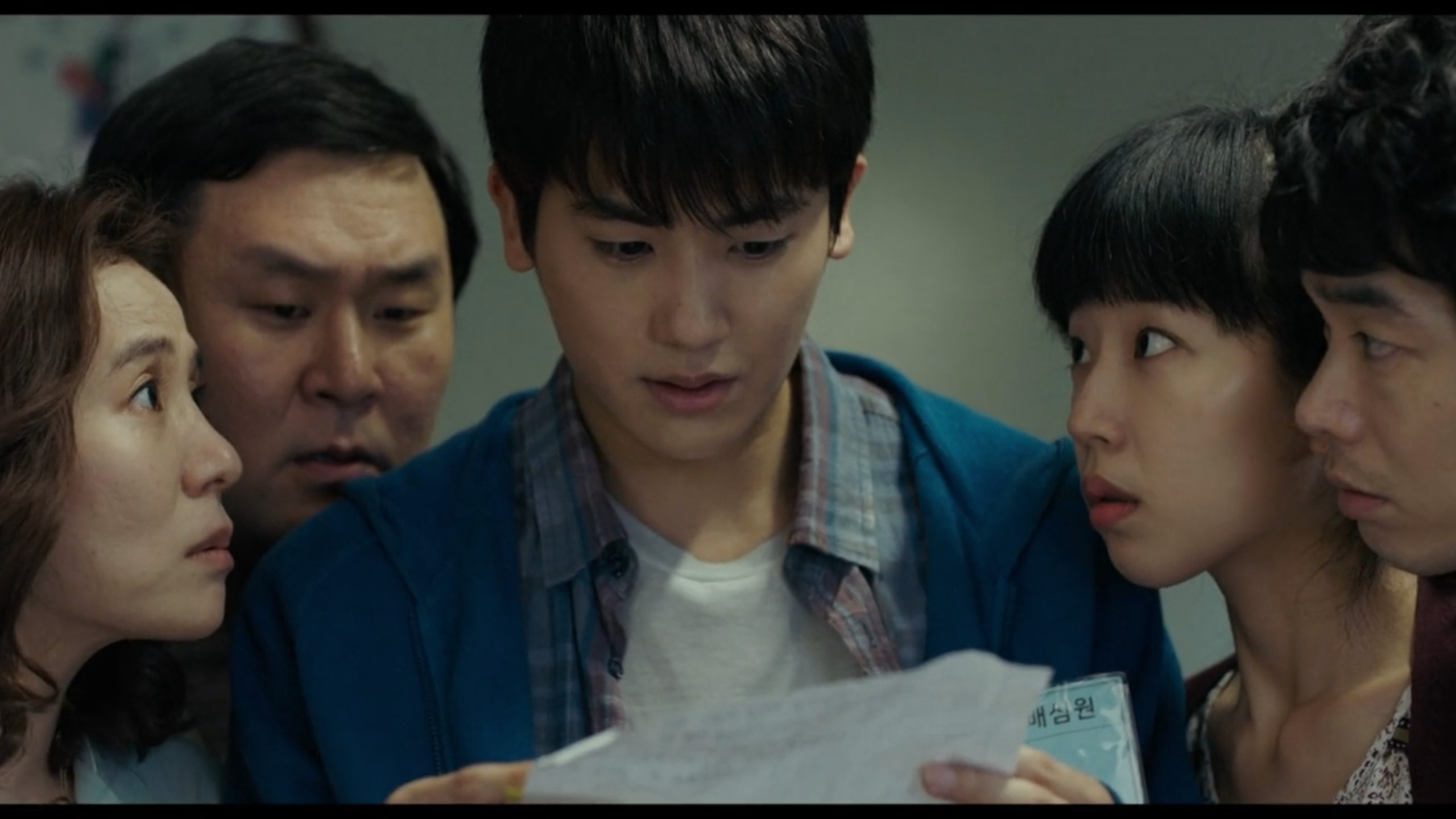[ad_1]
[K-Movie Night] Juror 8
by Dramaddictally

Welcome to K-Movie Night — a once-a-month feature where we microwave some popcorn, put on a face mask, and get cozy with a Korean movie from yesteryear. With so many films finally streaming (with subs!), now is the time to get caught up on all those movies we missed featuring our favorite drama actors.
Each month, we’ll pick a flick, write a review, and meet you back here to discuss whether or not it’s worth a watch. Super simple. All you have to do is kick up your feet and join us in the comments!
MOVIE REVIEW

Can you ever have enough Park Hyung-shik? Judging by the ratings of the Doctor Slump premiere last weekend, I’m wagering the answer is no. To that end, we’re watching the courtroom drama mystery Juror 8 — for which he took home Best New Actor and Popular Star awards — because waiting until the weekend for an adorable smile to roll around just seems like way too long.
Plus, what better way to start a new year than taking a little inventory of the past and seeing how times have changed. Juror 8 was released in 2019, but it’s set in 2008 when Korea had its first ever jury trial. It was a contentious move to allow the public to participate in criminal trials, and as we might imagine, the first run wasn’t exactly smooth sailing. Partly inspired by the real-life case and partly based on the 1957 U.S. crime thriller 12 Angry Men, the film’s combination of mystery and history sounded too good to pass up (especially when it comes with a side of dimples).

The movie starts by giving us the historical context. The judiciary isn’t psyched about this whole public involvement in courtroom decisions thing, and the press is capturing every angle. To ground the context within the characters, we meet the head judge, KIM JOON-KYEOM (Moon Sori), whose promotion depends on the outcome of this first jury trial. It’s stressful because the judges are used to having sole control — and what do a bunch of non-experts know about deciding cases anyway?
When they need to fill eight slots on the jury but only have seven, the judges are down to the final hour trying to round up a suitable candidate. Enter our protagonist, KWON NAM-JOO (Park Hyung-shik), who’s in crazy debt over some newly developed self-defense product prototypes, but who refuses to give up on his invention because it’s just too important to him. The bottom line: we know this guy’s persistent.

Nam-joo becomes Juror 8 basically by default because they just need somebody, like, right now. The three presiding judges agree he’s clueless, but they also believe this is an open-and-shut case. It’s just a matter of determining the sentence because the defendant (Seo Hyun-woo) is clearly guilty. He fought with his mother over money, murdered her, and then tried to cover it up so it looked like an accident. There would be no reason for these jurors to stir up any trouble when there’s such damning evidence — I mean, the guy already confessed.
This is the tone throughout the movie, as the judges maintain a high and mighty exasperation with each new question the jurors have about the case. Almost the entirety of the film takes place in the courthouse, first as the two sides present evidence and call witnesses, and then as the jurors deliberate. The questions begin right away when we learn that the defendant suffered a brain hemorrhage at the scene of the crime and literally does not remember whether or not he killed his mother.
This makes the confession he wrote problematic, and by the time he stands up in court and screams that he was told to write it (before backing down and saying he doesn’t remember), it becomes clear that the jury will have to decide on his guilt or innocence, not just go along assuming he’s guilty. They’ve suddenly got much more responsibility on their hands and a few of them, including Nam-joo, take it very seriously.

About halfway through, the movie picks up tension when the jurors go into a room to deliberate and cast their votes — and the film’s second half is all about their inability to come to a conclusion. Nam-joo’s characterization is what makes the story work from here on out because he’s not the smartest guy in the room, he’s only the most undecided. This is where that persistence comes back into play.
All the other jurors decide quickly on a guilty verdict, but Nam-joo refuses to turn in his ballot. This is key because the jurors don’t need to be unanimous in their decision, but they do all need to vote. The longer he holds out, asks to review the evidence, and stays settled in his uncertainty, the more he starts to make the other jurors question their votes.

Park Hyung-shik carries this off well as the hapless young man who’s not staunchly set in his convictions, and not even great at arguing or reasoning through the evidence, but is simply so unsure that he plants the seeds of doubt in all of his fellow jurors. This doubt pulls them further apart, giving more nuance to their opinions, until some of them are at opposite extremes, arguing against each other.
With so few settings and a limited number of actors, it does sometimes feel like a stage play. But those aspects are also what drive up the tension. We never get to know any of the jurors deeply, and that’s okay, because the important part is how they interact with each other in these closed up rooms. The characters are archetypes, playing out against one another and calling up what’s both brilliant and burdensome about the jury system.

The movie ends with two twists, one of them fiction and one of them fact. I won’t give away the made-up melo bit that cinches the plot, but the factual part is sort of the whole point of the story. At the end of their heated debates, the jury learns that their opinion is only advisory — it doesn’t bind the court — and the judges will still decide the final verdict as they see fit.
Luckily, the film uses this real-life information in a way that makes for a highly affecting ending. All the while we were led to believe that it’s the jurors who are being schooled, only to find out that it’s the judges who are learning.
At times corny and cookie-cutter, Juror 8 is enjoyable fare precisely for being what it is. It’s got blood without being gruesome, a light and upbeat tone even as it tackles a serious topic, and a sense of realism when it comes to the jurors, who have selfish reasons for pressuring each other to hurry their decision. Plus, it taught me some things about the Korean legal system, like for example, jury opinions are still only advisory, “not guilty” verdicts are higher in jury trials, and you never know when Park Hyung-shik might be the one sitting next to you in the jury box.

Join us in February for the next K-Movie Night and let’s make a party of it! We’ll be watching Il Mare (2000) and posting the review during the last week of the month.
Want to participate in the comments when it posts? You’ve got three weeks to watch! Rather wait for the review before you decide to stream it? We’ve got you covered.
RELATED POSTS
[ad_2]
Source link